Togo officially the Togolese Republic (French: République togolaise), is a country in West Africa bordered by Ghana to the west, Benin to the east and Burkina Faso to the north. It extends south to the Gulf of Guinea, where its capital Lomé is located. Togo covers 57,000 square kilometers (22,008 square miles), making it one of the smallest countries in Africa, with a population of approximately 7.5 million
Togo
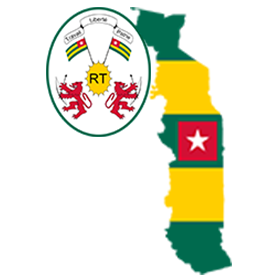
Location
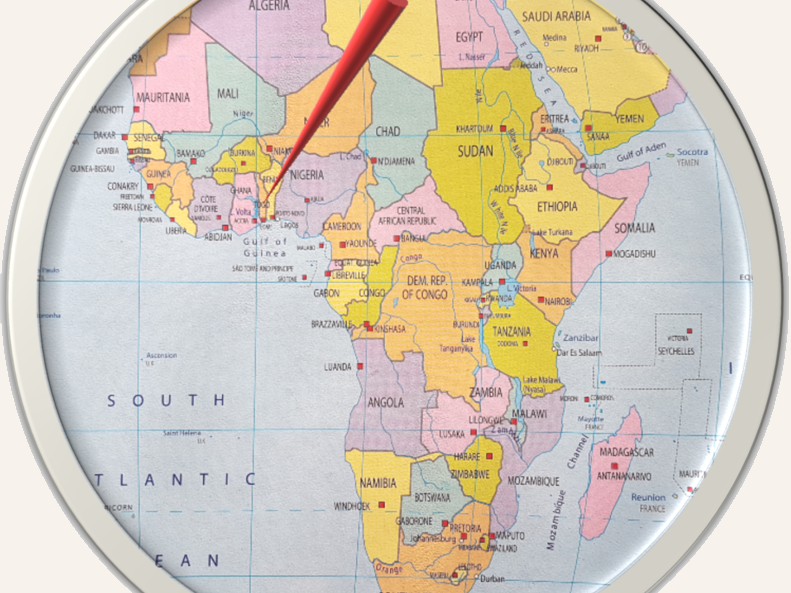
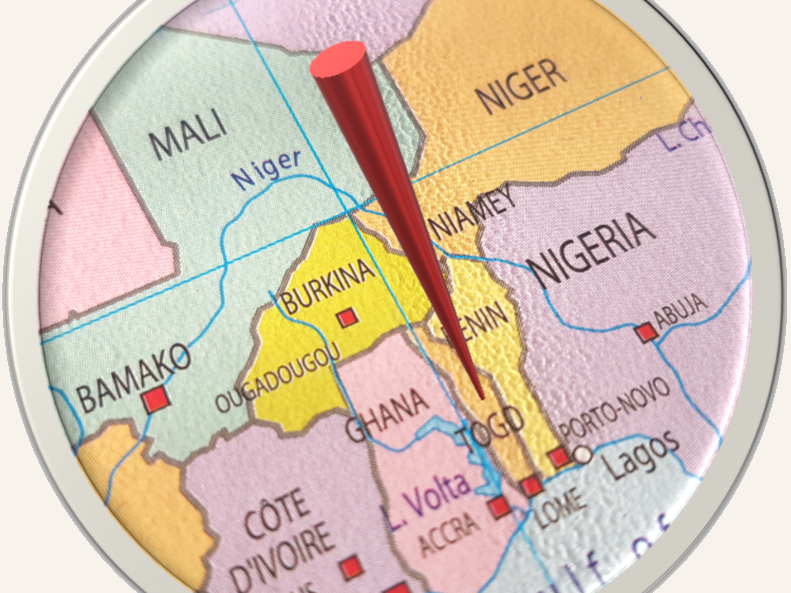
Togo has an area equal to 56,785 km2 (21,925 sq mi) and is one of the smallest countries in Africa. It borders the Bight of Benin in the south; Ghana lies to the west; Benin to the east; and to the north, Togo is bound by Burkina Faso. Togo lies mostly between latitudes 6° and 11°N, and longitudes 0° and 2°E.
Vegetation and Clime


The coast of Togo in the Gulf of Guinea is 56 km long and consists of lagoons with sandy beaches. In the north the land is characterized by a gently rolling savanna in contrast to the center of the country, which is characterized by hills. The south of Togo is characterized by a savanna and woodland plateau which reaches to a coastal plain with extensive lagoons and marshes. The northern part of Togo is characterized by tropical savanna.
Religion
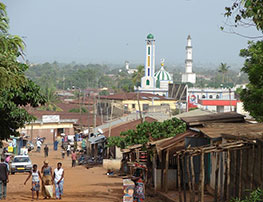
Approximately 29% of the population is Christian, 20% are Muslim, and 51% hold indigenous beliefs.
Geschichte
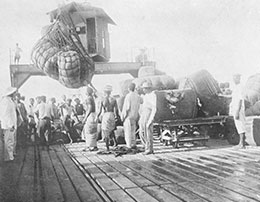
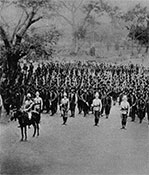
From the 11th to the 16th century, various tribes entered the region from all directions. From the 16th century to the 18th century, the coastal region was a major trading center for Europeans to search for slaves, earning Togo and the surrounding region the name "The Slave Coast". In 1884, Germany declared Togoland a protectorate. After World War I, rule over Togo was transferred to France. Togo gained its independence from France in 1960. In 1967, Gnassingbé Eyadéma led a successful military coup d'état after which he became president. At the time of his death in 2005, Gnassingbé was the longest-serving leader in modern African history, after having been president for 38 years. In 2005, his son Faure Gnassingbé was elected president.
Togo is a tropical, sub-Saharan nation, highly dependent on agriculture, with a climate that provides good growing seasons. The official language is French, with many other languages spoken in Togo, particularly those of the Gbe family. The largest religious group in Togo consists of those with indigenous beliefs, and there are significant Christian and Muslim minorities. Togo is a member of the United Nations, African Union, Organisation of Islamic Cooperation, South Atlantic Peace and Cooperation Zone, La Francophonie and Economic Community of West African States.
Politics
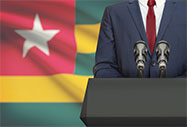
President is elected by universal and direct suffrage for 5 years. He is also the commander of the armed forces and has the right to initiate legislation and dissolve parliament. Executive power is exercised by the president and the government. The head of government is the Prime Minister, who is appointed by the president.
Togo's transition to democracy is stalled. Its democratic institutions remain nascent and fragile. President Gnassingbé Eyadéma, who ruled Togo under a one-party system, died of a heart attack on 5 February 2005. Gravely ill, he was being transported by plane to a foreign country for care. He died in transit while over Tunisia. Under the Togolese Constitution, the President of the Parliament, Fambaré Ouattara Natchaba, should have become President of the country, pending a new presidential election to be called within sixty days. Natchaba was out of the country, returning on an Air France plane from Paris.
The Togolese army, known as Forces Armées Togolaises (FAT), or Togolese Armed Forces, closed the nation's borders, forcing the plane to land in nearby Benin. With an engineered power vacuum, the Parliament voted to remove the constitutional clause that would have required an election within sixty days, and declared that Eyadema's son, Faure Gnassingbé, would inherit the presidency and hold office for the rest of his father's term. Faure was sworn in on 7 February 2005, despite international criticism of the succession.
On 24 April 2005, Gnassingbé was elected President of Togo, receiving over 60% of the vote according to official results. His main rival in the race had been Emmanuel Bob-Akitani from the Union des Forces du Changement (UFC) or Union of Forces for Change. However, electoral fraud was suspected, due to a lack of European Union or other independent oversight. Parliament designated Deputy President, Bonfoh Abbass, as interim president until the inauguration. On 3 May 2005, Faure Gnassingbé was sworn in as the new president and the European Union suspended aid to Togo in support of the opposition claims, unlike the African Union and the United States which declared the vote "reasonably fair." The Nigerian president and Chair of the AU, Olusẹgun Ọbasanjọ, sought to negotiate between the incumbent government and the opposition to establish a coalition government, but rejected an AU Commission appointment of former Zambian president, Kenneth Kaunda, as special AU envoy to Togo. In June, President Gnassingbé named opposition leader Edem Kodjo as the prime minister.
In October 2007, after several postponements, elections were held under proportional representation. This allowed the less populated north to seat as many MPs as the more populated south. The president-backed party Rally of the Togolese People (RPT) won outright majority with the UFC coming second and the other parties claiming inconsequential representation. Again vote rigging accusations were leveled at the RPT supported by the civil and military security apparatus. Despite the presence of an EU observer mission, canceled ballots and illegal voting took place, the majority of which in RPT strongholds. The election was declared fair by the international community and praised as a model with little intimidation and few violent acts for the first time since a multiparty system was reinstated. On 3 December 2007 Komlan Mally of the RPT was appointed to prime minister succeeding Agboyibor. However, on 5 September 2008, after only 10 months in office, Mally resigned as prime minister of Togo.
Faure Gnassingbé won re-election in the March 2010 presidential election, taking 61% of the vote against Jean-Pierre Fabre from the UFC, who had been backed by an opposition coalition called FRAC (Republican Front for Change). Though the March 2010 election was largely peaceful, electoral observers noted "procedural errors" and technical problems, and the opposition did not recognize the results, claiming irregularities had affected the outcome. Periodic protests followed the election. In May 2010, long-time opposition leader Gilchrist Olympio announced that he would enter into a power-sharing deal with the government, a coalition arrangement which provides the UFC with eight ministerial posts. In June 2012, electoral reforms prompted protesters to take to the street in Lomé for several days; protesters sought a return to the 1992 constitution that would re-establish presidential term limits. July 2012, saw the surprise resignation of the prime minister, Gilbert Houngbo. Days later, the commerce minister, Kwesi Ahoomey-Zunu, was named to lead the new government. In the same month, the home of opposition leader Jean Pierre Fabre was raided by security forces, and thousands of protesters again rallied publicly against the government crackdown.
Economy
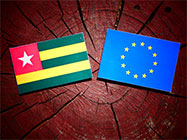
Among the smallest countries in Africa, Togo enjoys one of the highest standards of living on the continent owing to its valuable phosphate deposits and a well-developed export sector based on agricultural products such as coffee, cocoa bean, and peanuts (groundnuts), which together generate roughly 30% of export earnings. The fertile land occupies 11.3% of the country, most of which is developed. Major crops are cassava, jasmine rice, corn and millet. Mining generated about 33.9% of GDP in 2012 and employed 12% of the population in 2010. Togo has the fourth largest phosphate deposits in the world. Their production is 2.1 million tons per year.
Agriculture
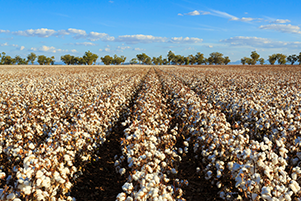
Agriculture is the backbone of the economy generating 28.2% of GDP in 2012 and employed 49% of the working population in 2010. The country is essentially self-sufficient in food production. Livestock production is dominated by cattle breeding.
Agriculture is the most important sector to most Togolese. It employs two-thirds of the active population, who predominantly work on small land holdings. Food crops (mainly cassava, yams, maize, millet, and sorghum) account for two-thirds of production, and are mostly used domestically. Togo’s cash crops are mainly cocoa, coffee, cotton, and to a lesser extent, palm oil. These cash crops provide a valuable return for small farmers, and they provide 40 percent of exports. Some foodstuffs need to be imported. The main imported foodstuff is rice, although production has increased 6-fold since the mid-1980s. Production increased by 9.1 percent in 1999 due to good weather.
State budget
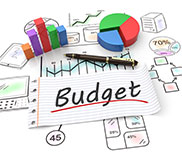
2017 Budget: 1,227, 4 billion CFA.
